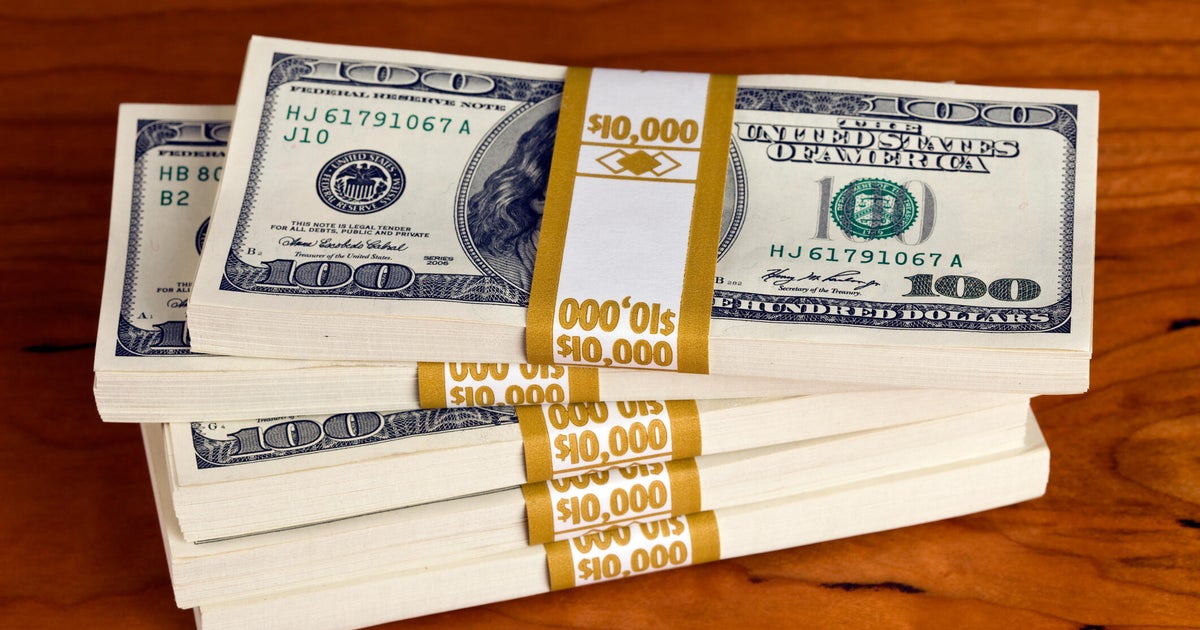U.S. markets mixed after Putin cites "positive movement" in talks with Ukraine
U.S. markets had mixed reactions on Friday, with investors seemingly somewhat cheered by Russian President Vladimir Putin citing "positive movement" in talks with Ukraine, Bloomberg reported.
In morning trade the Dow Jones Industrial Average rose 0.7% to 33,404. The S&P 500 was up 0.4%, and tthe tech-heavy Nasdaq slipped 0.3%.
The Russian president's remarks come as Ukrainian civilians in besieged areas of the country continue to flee brutal attacks by Russian forces poised for a possible assault on Kyiv and other major cities. CBS News senior foreign correspondent Charlie D'Agata reports residents are fleeing Ukraine's capital. Some never get the chance to flee as heavy fighting leaves many trapped or dead. As Russian attacks intensify, hunkering down, hiding out and hoping the worst won't happen is no longer an option.
A plan to revoke Russia's "most favored nation" trade status over its invasion of Ukraine added to unease over the economic repercussions of the deepening conflict after talks between foreign ministers of the two countries failed to show any concrete progress.
President Joe Biden plans to announce the change Friday, according to a source familiar with the matter who spoke on the condition of anonymity to preview the announcement. It will allow the U.S. and other major industrial countries to raise tariffs on some Russian exports.
The move may have only a modest impact on trade, since it will have a negligible effect on most exports of oil, gas and other Russian resources, experts said.
Investors were keeping to the sidelines ahead of the weekend, given the potential for big surprises while markets are closed, analysts said.
"When confidence is low, risk managers are in the drivers' seat, keeping bank and market maker liquidity to a minimum which could be exacerbating inter-day moves," Stephen Innes of API Asset Management said in a commentary.
"And no wonder as predicting day-to-day market actions is about as consistent as flipping a coin," Innes said.
Surging coronavirus cases in both the Chinese mainland and Hong Kong have have added to concerns dogging their markets.
Oil prices ease
Oil prices have moderated after wild swings earlier in the week. U.S. benchmark crude rose 52 cents to $106.54 per barrel in electronic trading on the New York Mercantile Exchange. It fell $2.68 Thursday to $106.02 per barrel.
President Biden on Tuesday announced a U.S. ban on Russian oil and gas imports over the country's invasion of Ukraine, a direct hit on Russian President Vladimir Putin's main revenue source as Russian forces continue their battering of Ukrainian cities.
U.S. gas prices are hitting record highs almost daily, causing financial pain at the pump for millions of Americans. But it's also spurring questions about why fuel is so expensive — and who's to blame.
Brent crude, the basis for international pricing, was up 66 cents to $109.99 per barrel in London.
Both it and U.S. benchmark crude are up more than 40% for 2022 so far, though they remain below the peaks they hit earlier this week, when U.S. oil briefly topped $130.
Oil's back-and-forth moves are just some of the waves buffeting markets as volatility has become the norm since Russia's invasion of Ukraine, which has added to worries about how high prices will go for oil, wheat and other commodities.
Investors already were on edge because high inflation is pushing central banks to raise interest rates for the first time since the pandemic began and halt programs launched to support the global economy.
A report Thursday showed U.S. consumer prices leaped 7.9% in February from a year earlier, the sharpest spike since 1982. The reading was largely within expectations and did not include the most recent surges for oil and gasoline prices. It also didn't hit the 8% threshold that might trigger alarm.
The Federal Reserve is expected to raise its key short-term rate by a quarter of a percentage point next week, the first hike since 2018. Higher rates slow the economy, and the Fed is trying to raise them enough to tamp down inflation but not so much that it causes a recession.
In other trading, the yield on the 10-year Treasury, which tracks expectations for inflation and economic growth, wavered immediately after the inflation report's release. It rose to 2% from 1.94% late Wednesday. Early Friday it was at 2.02%.



